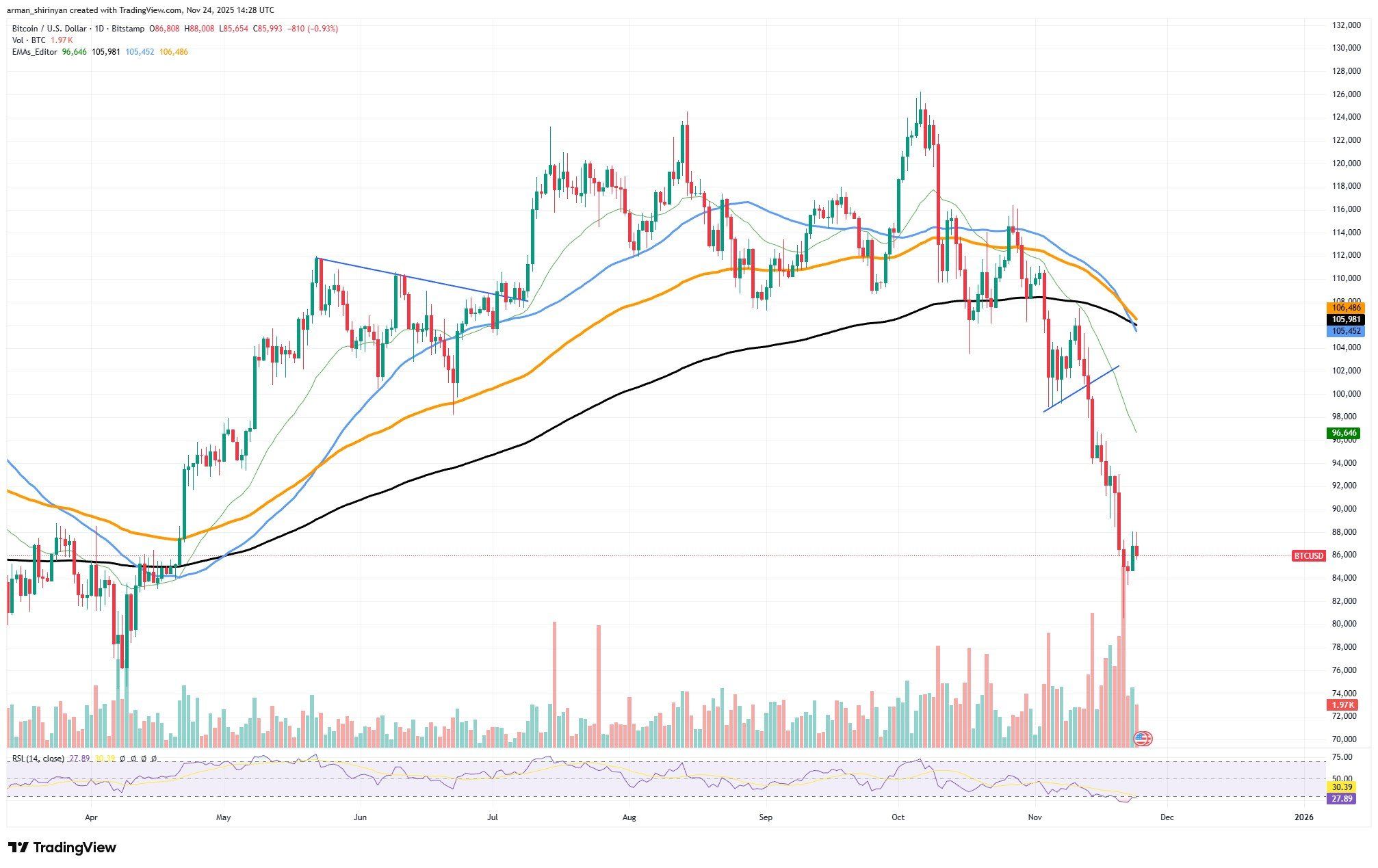Bitcoin Updates: Saylor Questions MSCI's New Classification, Stands by MSTR's Main Business Model
- Michael Saylor defends MicroStrategy's operational core, rejecting fears of $8.8B outflows if MSCI reclassifies it as a crypto-heavy entity. - JPMorgan warns index exclusion could trigger mechanical selling, worsening liquidity and capital-raising challenges amid Bitcoin's 30% price drop. - MSTR's Bitcoin-backed credit program faces scrutiny as its stock plummets 67% and premium to holdings collapses to 1.1X, signaling eroding investor confidence. - MSCI's January 2026 decision will test MSTR's narrative
Michael Saylor, the head of
The index provider is currently assessing whether firms with more than half their assets in digital currencies should continue to be included in global equity indices. MSTR, which owns 649,870
The recent decline in Bitcoin's price has heightened these concerns. After falling to $82,605 on November 21, Bitcoin has dropped over 30% from its October high,
Despite the turbulence, Saylor stands firm, describing MSTR as a "Bitcoin-backed structured finance company"
The market's attention is now on MSCI's verdict set for January 15, 2026.
As the crypto industry prepares for a potential "crypto winter," MSTR's situation highlights the vulnerability of narrative-driven valuations in a risk-averse market. With up to $8.8 billion in possible outflows and Bitcoin's technical outlook weakening, the next few months will challenge the durability of a company built on the concept of digital gold.
Disclaimer: The content of this article solely reflects the author's opinion and does not represent the platform in any capacity. This article is not intended to serve as a reference for making investment decisions.
You may also like

Mining Stocks Jump 20% as Amazon’s $50B AI Push Boosts Demand for Power
Arthur Hayes warns Bitcoin could nuke to low $80Ks before bottoming
On-Chain Proof: The Crash Was a Bitcoin Panic, Not an Ethereum Collapse